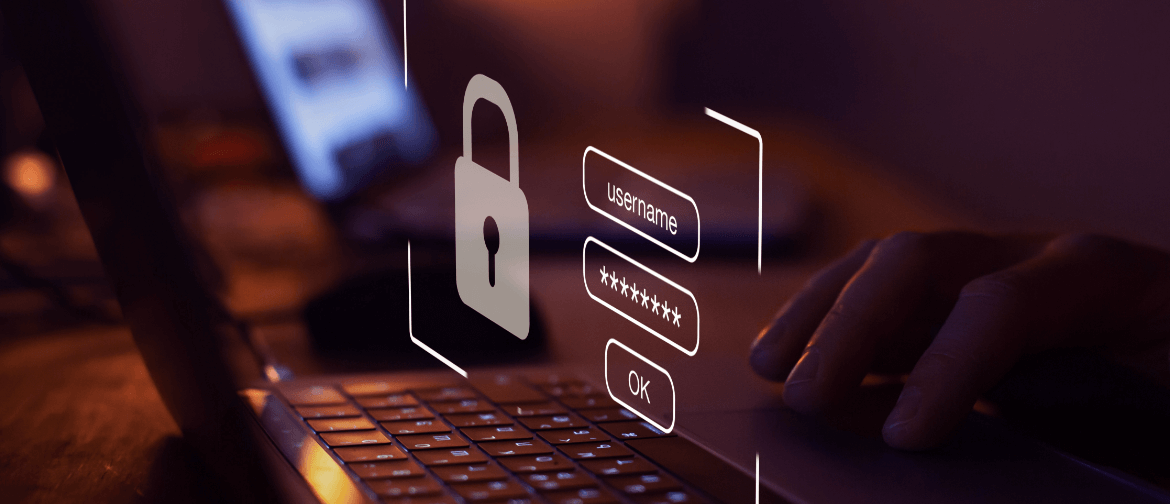How to Create Strong Passwords for Your Business
Troy Gerrie • June 14, 2023
In today's digital age, protecting sensitive information is of utmost importance, especially when it comes to your business. One of the simplest yet most effective ways to safeguard your accounts is by creating strong passwords. A strong password can significantly reduce the risk of unauthorised access and potential data breaches. In this article, we will explore some essential tips on how to create strong passwords for your business.
Length and Complexity Matter: Passphrases
When it comes to passwords, length and complexity are crucial. Instead of relying solely on complex strings of characters, consider using passphrases. Passphrases are longer phrases or sentences that are easier for you to remember but harder for attackers to crack. Aim for passphrases with a minimum of 12 characters or more. For example, instead of using "Password123," you could use "Ilovet0BeSecure!" or "DancingInTheRainIsFun!" Incorporate a mix of uppercase and lowercase letters, numbers, and symbols to make your passphrase even stronger.
Unique Passwords for Each Account
Using the same password for multiple accounts is a common mistake that can lead to disastrous consequences. If one account is compromised, the attacker will gain access to all your other accounts. Make sure to use different passwords for each account you access, whether it's for your email, social media, or business-related platforms. This way, if one account is compromised, the damage is limited.
Avoid Common Words and Personal Information
To create strong passwords or passphrases, avoid using easily guessable words, regardless of language, or personal information such as your name, family member names, pet names, birthdays, etc. Hackers often employ automated tools that can crack passwords using common words or personal details. Be creative and choose unique combinations of characters that are not easily associated with you. Consider using phrases or sentences and replacing letters with numbers or symbols.
Enable Multi-Factor Authentication (MFA)
Multi-factor authentication provides an additional layer of security for your accounts. It combines something you know (your password) with something you have (a mobile phone, physical key, etc.). Whenever possible, enable MFA for your business accounts. This added step ensures that even if your password is compromised, an attacker would still need access to the second factor to gain entry.
Regularly Change Passwords
Changing passwords regularly is a hot debate, some Cyber Security experts would argue that they should be changed on a regular basis while others would encourage against this as it can create dangerous password rotation mechanisms.
This industry standard has long stood at rotating your passwords every 180 days and Yorb is happy to support either situation. If you suspect any compromise or unauthorised access to your account, change your passwords immediately. By frequently changing passwords, you minimize the risk of someone accessing your accounts with old or previously compromised passwords. This practice ensures that even if someone manages to obtain your password, they will have a limited window of opportunity to exploit it.
Use Secure Password Managers, Avoid Browser Password Managers
While browser password managers may seem convenient, they can pose security risks. Some browsers store passwords in clear text and do not implement robust password protection by default. Instead, opt for dedicated password manager tools. Secure password managers are designed to encrypt and store your passwords in a protected vault. They generate strong, unique passwords for each account, eliminating the need to remember multiple complex passwords. These tools often offer additional features like password sharing, secure password syncing across devices, and two-factor authentication.
Don't Enable Automatic Logins
Avoid allowing websites to automatically log in to your accounts. While this feature may save time, it can pose a security risk. Many services store this information locally, and if an attacker gains access to your device, they can easily exploit this functionality to log in to your accounts without needing your password. Always prefer manually entering your login credentials to ensure better security. This way, you have better control over your account access.
Keep Passwords Confidential
Never share your passwords with anyone, regardless of the circumstances. Legitimate businesses will never ask for your login credentials via email or phone calls. Be cautious of phishing attempts, where attackers try to trick you into revealing your passwords. Always verify the authenticity of any communication before providing any sensitive information. Educate yourself and your employees about the dangers of sharing passwords and the importance of keeping them confidential.
Follow Your Organisation's Password Policy
If you are part of a business or organisation, it's crucial to adhere to its password policy. Many organizations have specific guidelines in place to ensure the security of their systems and data. Familiarise yourself with these policies and make sure to create strong passwords or passphrases that meet the requirements. Additionally, use separate passwords for work-related and personal accounts to prevent cross-contamination.
Remember, a strong password is your first line of defense in safeguarding your business's valuable assets and sensitive data. Invest the time and effort to create unique, robust, and memorable passwords or passphrases for each of your accounts. Stay vigilant, stay informed about emerging security practices, and make password security a priority in your business. By implementing these measures, you can fortify your business against unauthorised access and ensure the protection of your valuable digital assets.
Recent Posts




